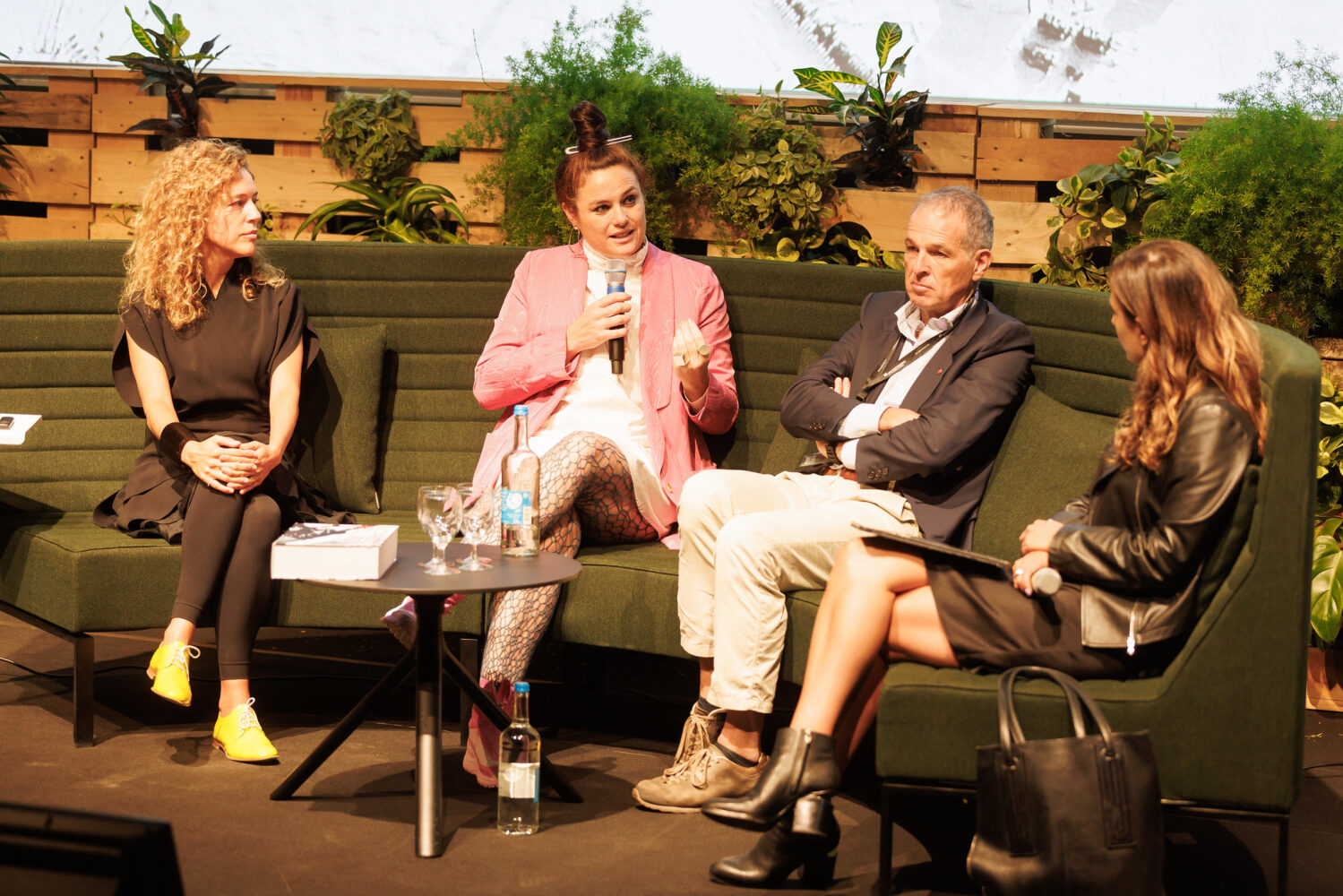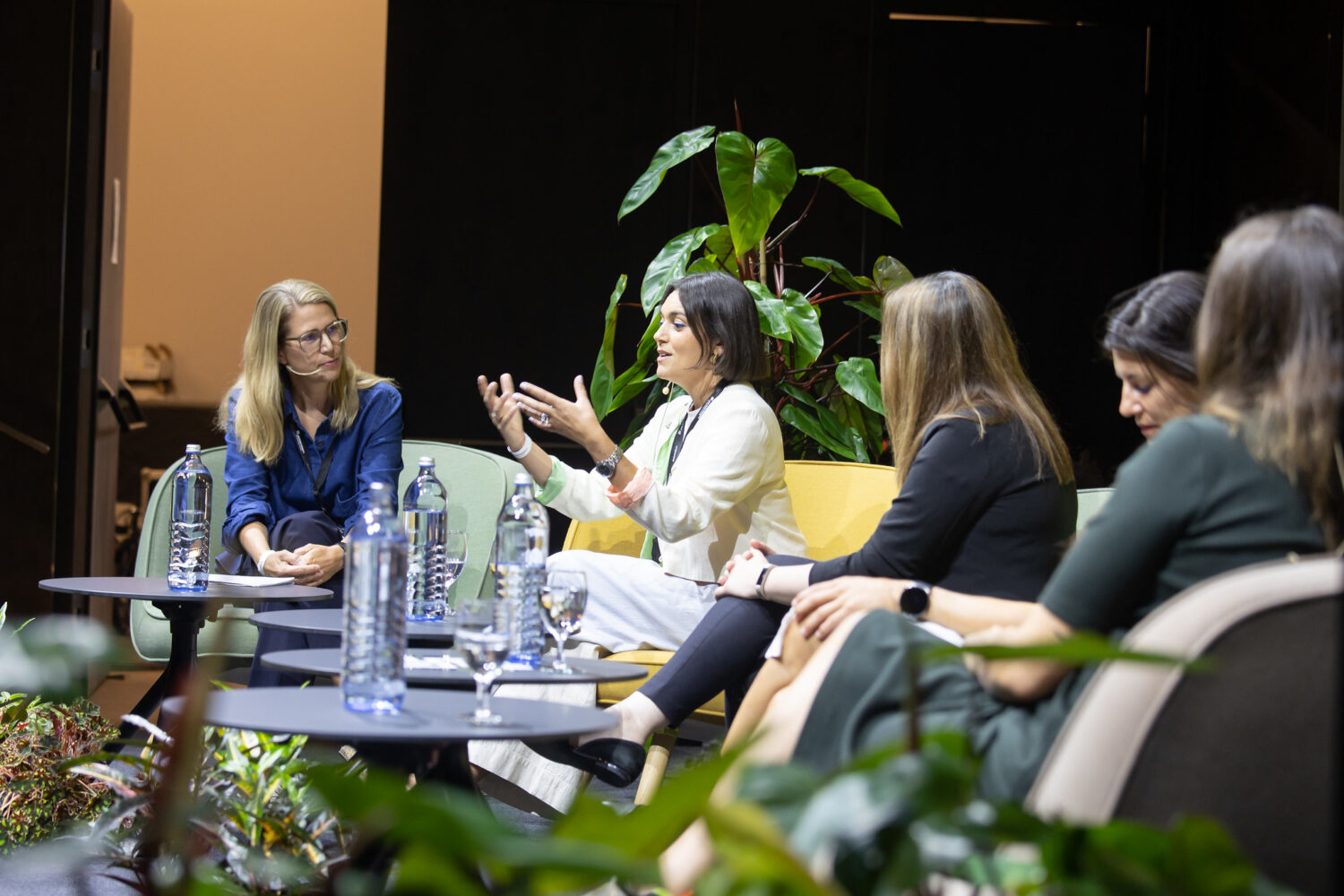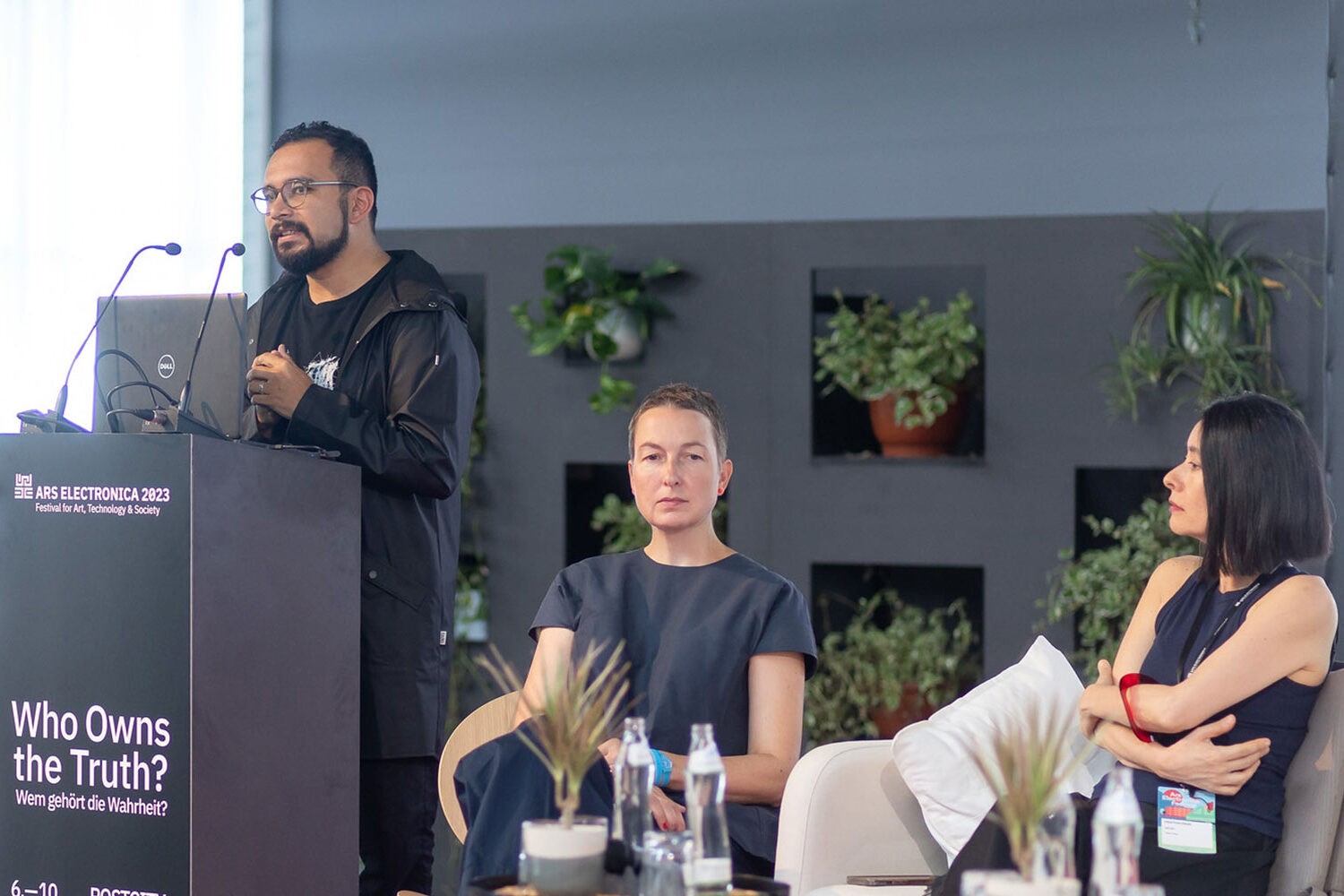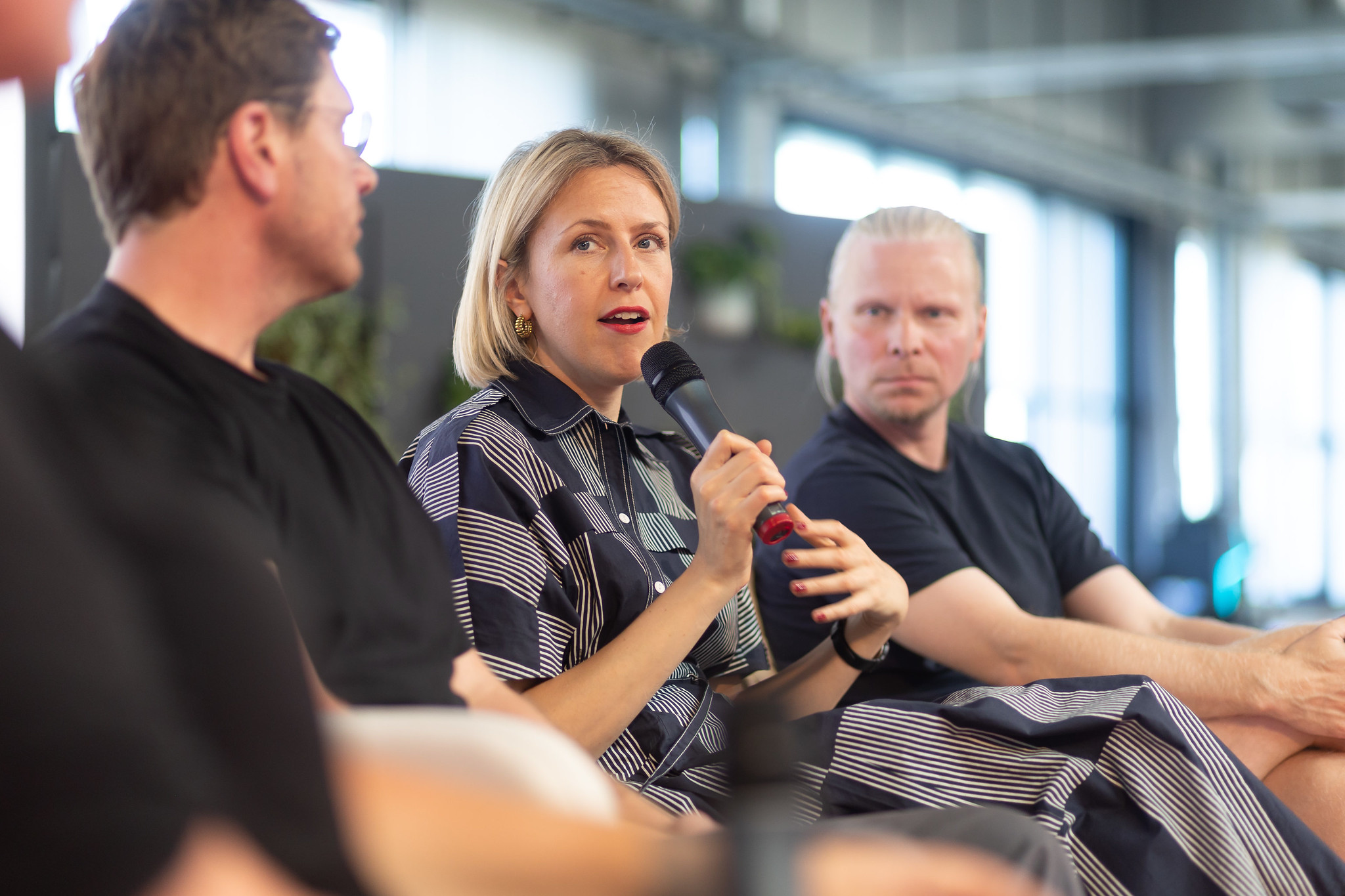This year’s theme symposium will focus on people who inspire others through their creativity, empathy and courage, and who create hope for a better future.
The Ars Electronica Theme Symposium is about addressing current societal challenges and the role of art, technology and innovation in developing solutions. The symposium brings together experts to explore new approaches that can contribute to a more sustainable and equitable future through presentations, discussions and projects. This year’s theme symposium places a strong focus on people who are leading the way with creativity, empathy and courage-people who inspire and give hope for a better future. In contrast to previous years, the focus is not only on presentations by artists and theoretical considerations, but also on the practical work of companies, projects and initiatives that use new technologies to tackle social challenges such as the climate crisis, the energy transition and the impact of artificial intelligence.
From September 5-7, the theme symposium will showcase a variety of initiatives and examples that promote optimism for a more sustainable and equitable future and serves as a platform to explore innovative solutions and inspire a vision of progress and hope. The conference marathon begins on Thursday with the STARTS Day Conference, which will open up new perspectives through inspiring impulses. This is followed on Friday by the Studiotopia Day Conference, which invites participants to exchange ideas and help shape the future. At the end of the weekend, the Prix Ars Electronica Forum will enrich the weekend with exciting discussions on the effects of the AI revolution.

Setting the technological course for a sustainable and fair future
Against the backdrop of current global debates on the use of artificial intelligence in education and the worldwide movement towards renewable energies in the wake of the climate crisis, this year’s STARTS Day Conference will shed light on how conscious technological decisions are necessary to develop sustainable and just models for the future. The theme symposium, which will accompany us for three days of the festival and put the spotlight on bearers of hope, is entitled “Reclaim, Relearn, Resist”. Prominent and inspiring personalities such as Francesca Bria, President of the National Innovation Fund of Italy and Honorary Professor of the Institute for Innovation and Public Purpose at UCL in London, Professor Kate Crawford, a leading international scholar in the field of the social and political impact of Artificial Intelligence, or Vladan Joler, Professor at the Art Academy of the University of Novi Sad and founder of the SHARE Foundation are just a few of the big names that will be at the center of the discussions and keynotes.
“Because it can break the existing monopoly on our imagination, hope becomes a necessary condition for radical change. If (perhaps only if) there is hope, there will be ways, most importantly, different ways of doing things. STARTS Day explores practices driven by hope to show what it can do, but also “exploits” them to create a sense of possibility.”
Ana Maria Carabelea, STARTS Day Co-Curator
The keynote “Culture, Democracy, the Rule of Law and the Critical Practice of AI” with Paul Nemitz and Frederike Kaltheuner emphasizes that the idea that a positive future would automatically arise through artificial intelligence is misleading and underlines the need to ensure the primacy of democracy over technology. To effectively address biases in technologies, appropriate frameworks must be created that set clear guidelines for transparency and fairness at the regulatory level. It is crucial not only to improve the technical aspects of technologies, but also to design their application in accordance with ethical standards in order to promote societal progress towards freedom and justice.
Among other things, the conference will focus on what we have learned from the last decades of the internet and the hopes we have placed in digital technologies, and ask what lessons we can learn from this to shape the future better. It also focuses on initiatives and projects that show alternative ways and possibilities of how technological developments can be used to reshape the digital world and the associated social, economic and political realities. Particular attention is paid to building visions of the future in which technology is at the service of democracy, social justice and the needs of users.

Sustainable innovations for our planet
STUDIOTOPIA is a European initiative that aims to mobilize collaborative and interdisciplinary expertise to find solutions to future challenges. Under the title “Stories of Reinvention, Disruption and Systemic Change to Reclaim our Future”, the Studiotopia Day Conference will focus on inspiring efforts of companies, start-ups, initiatives, artists and policy makers fighting against the dystopian future our fragile planet is facing.
“Rather than just having hope, we make it. The Studiotopia Day will show exactly this: manifold inspiring, creative and hope-giving examples of people who started acting in order to tackle one of today’s biggest challenges—making human life and cohabitation with non-human species and nature on our planet more sustainable.”
Daniela Silvestrin, Studiotopia Day Co-Curator
Germany has recently introduced unique environmental standards for the film industry covering all areas of production to make cinema, TV and online productions more environmentally friendly. Pheline Roggan, co-founder of Changemakers.film, played a central role in the development of these standards. In her keynote “And Action! Green Filming or How to Turn Climate Angst into Agency”, Pheline Roggan talks about how her commitment to sustainable practices in the film industry reflects her efforts to find and implement creative and concrete solutions to current challenges.
The keynote “Systemic Change Through Climate Literacy” addresses the growing importance of climate lawsuits as a means of enforcing climate justice. It sheds light on how such lawsuits are increasingly replacing demonstrations to hold state and private actors accountable. The discussion will present initiatives and approaches that promote climate awareness and justice, including the work of the law firm ClientEarth, which uses law as a tool for systemic change, as well as artistic and playful approaches to communicating the climate crisis.
The conference is dedicated to the transformation of existing systems towards sustainable and emission-free projects and presents innovative ideas that open up new perspectives for the harmonious coexistence of humans, nature and other living beings. Another focus is on legal measures to protect nature and secure a sustainable future. Journalist and host of the podcast “Planet Critical”, Rachel Donald, artist Beatie Wolfe, who won this year’s Prix Ars Electronica in the New Animation Art category for her work Smoke and Mirrors, professor and artist Jiabao Li, whose work deals with climate change, human technology and perception, as well as numerous other artists, scientists, researchers and economists will discuss how our systems and technologies can be transformed into more sustainable, environmentally friendly versions on the second day of the theme symposium.

New ways of art in the digital age
Saturday at the Ars Electronica Festival is all about art and artificial intelligence. What does it take to exploit the full potential of AI in art? The Prix Ars Electronica Forum will address this question under the title “AI and Artistic Creation” on the final day of the Ars Electronica Theme symposium, offering a day full of insightful sessions, interactive workshops and inspiring case studies exploring the interplay between artificial intelligence and creativity. As Artificial Intelligence increasingly influences different areas of the creative industry, the program gathers a diverse group of artists, scientists, researchers, technologists and activists to explore the integration of AI into creative work.
A talk with Anil Seth: “Consciousness and Creativity in the Age of AI”, moderated by AC Coppens, will explore the connection between consciousness, creativity and artificial intelligence. A central theme is the question of how biological processes influence our ability to be creative and innovative. Neuroscientist and professor at the University of Sussex, Anil Seth, will explain the concept of “anthropocentric bias”, the tendency to focus on human perspectives. He will also examine how the brain functions as a kind of prediction machine and whether this may be the source of inspiration.
The panel “AI and New Models in Creative Collaboration” explores how AI influences the art world and whether it leads to more collaboration and iterative processes. Moderated by Bettina Kames, director and co-founder of the Berlin Art Foundation LAS, artist Tamiko Thiel, professor Thor Magnusson, sound designer Felipe Sanchez Luna and composer Brigitta Muntendorf will share their experiences with creative collaborations and the involvement of technology companies, communities and the public in their creative process.
The Forum will also address the broader implications of the AI revolution, including changes in art valuation, intellectual property and business models. The aim of the Prix Ars Electronica Forum is to provide a comprehensive understanding of how to navigate and adapt in this changing creative industry environment.
Interactive formats and transdisciplinary exchange
In addition to the Ars Electronica Theme Symposium, the Ars Electronica Festival offers many other exciting discussions, lectures and workshops. The IT Founding Lab Day brings together experts from various disciplines who offer insights into their current approaches and strategies for transdisciplinary, practice-oriented learning. At the same time, the conference creates space for networking, sharing learning experiences and discussing ideas together. For the first time this year, there will be separate Town Hall meetings aimed at artists, but also open to interested visitors, with the aim of promoting exchange among artists and attracting new discussion participants. In special “Meet the Artist” formats, there will be the opportunity to take part in in-depth discussions and engage directly with the artists.
The Ars Electronica Festival 2024 will take place in Linz from September 4 to 8 under the theme “HOPE – who will turn the tide”. Tickets are available here.
